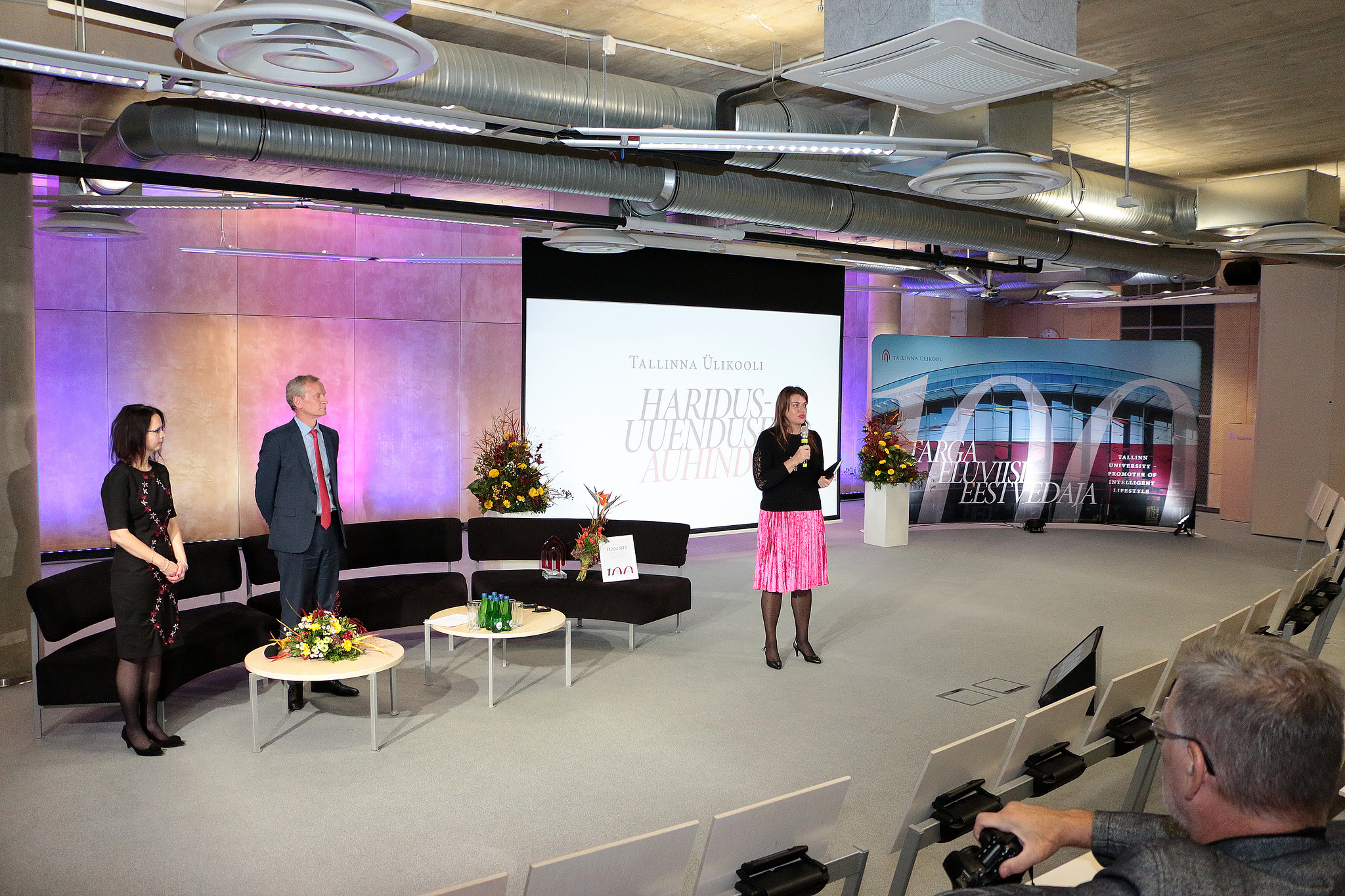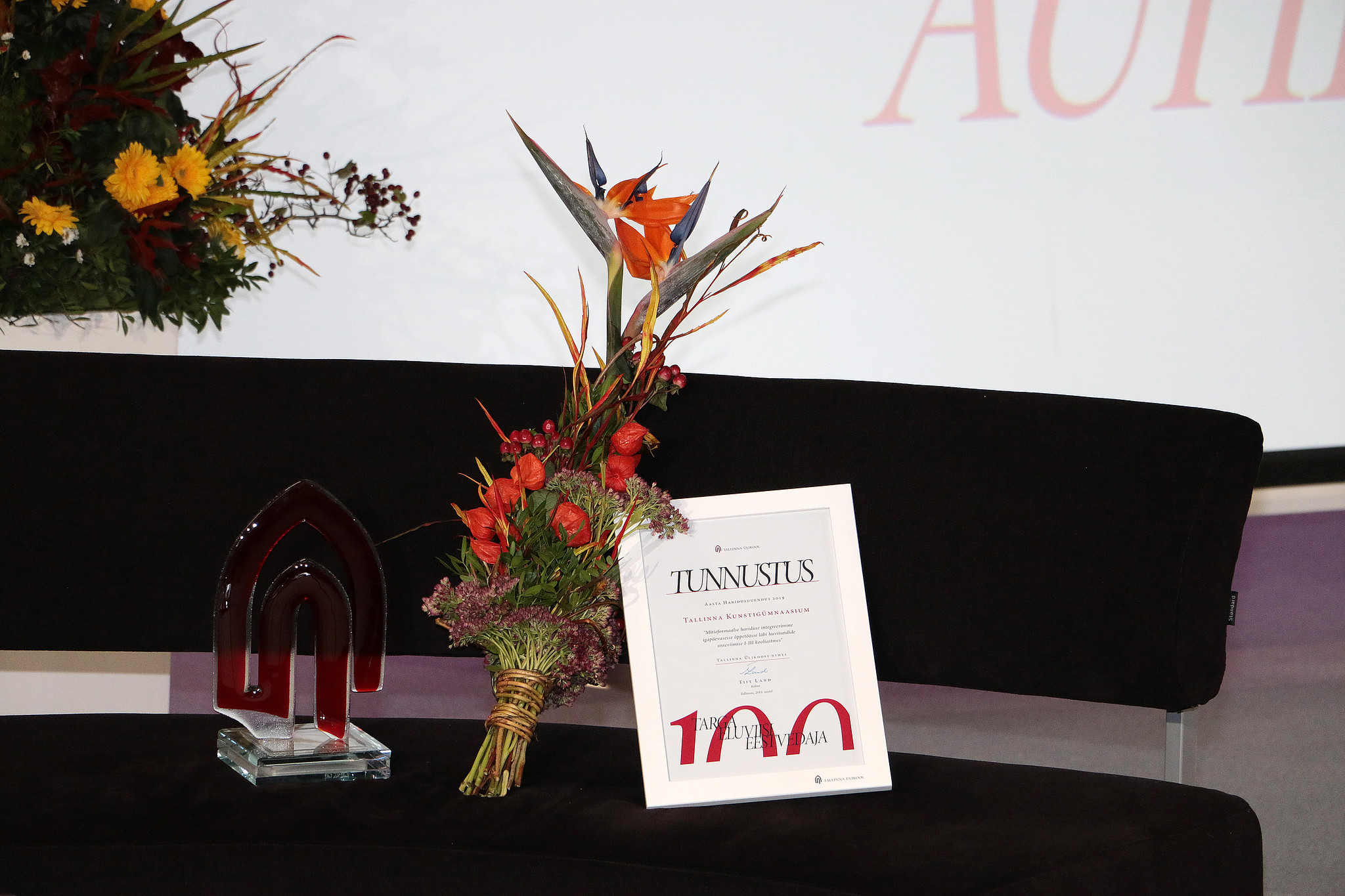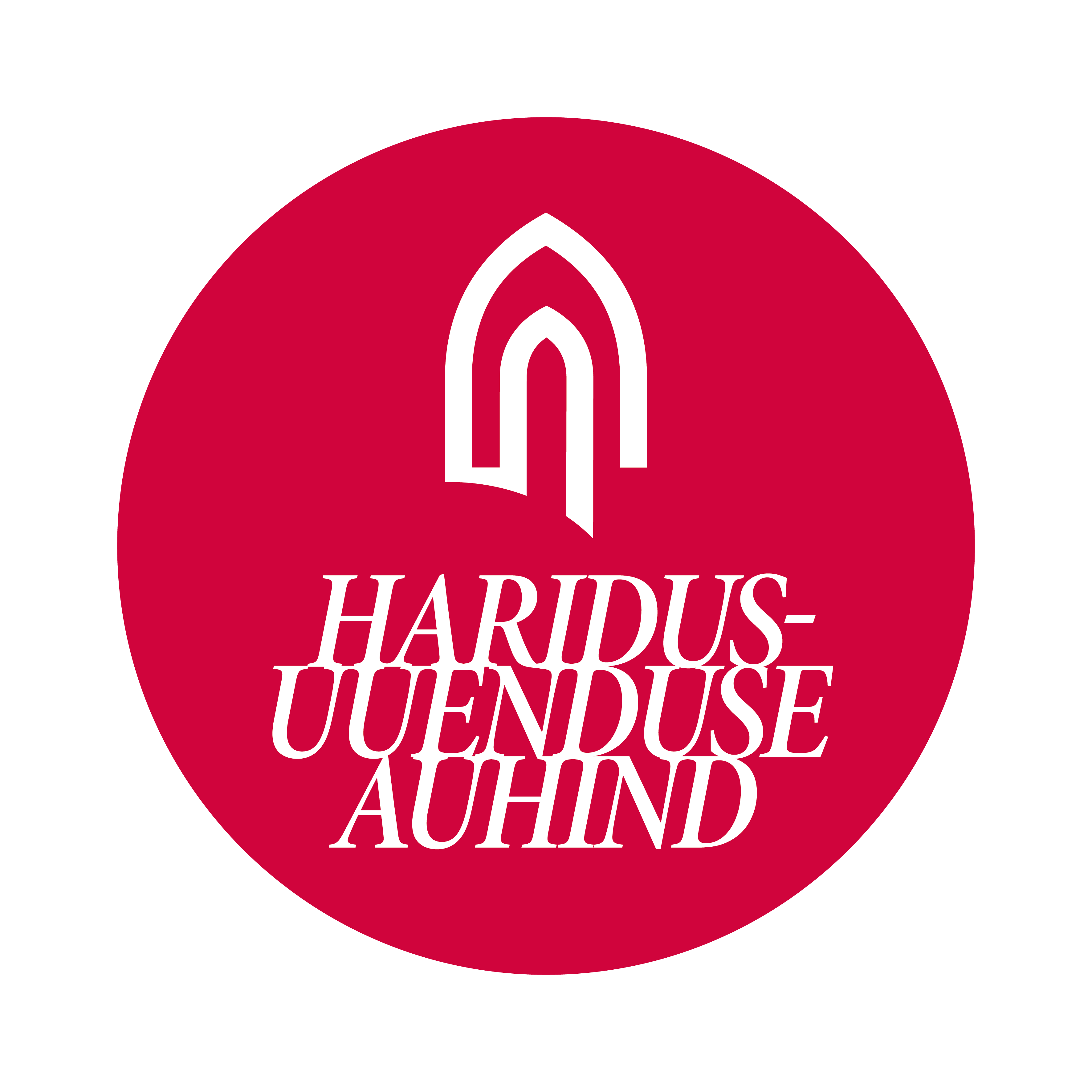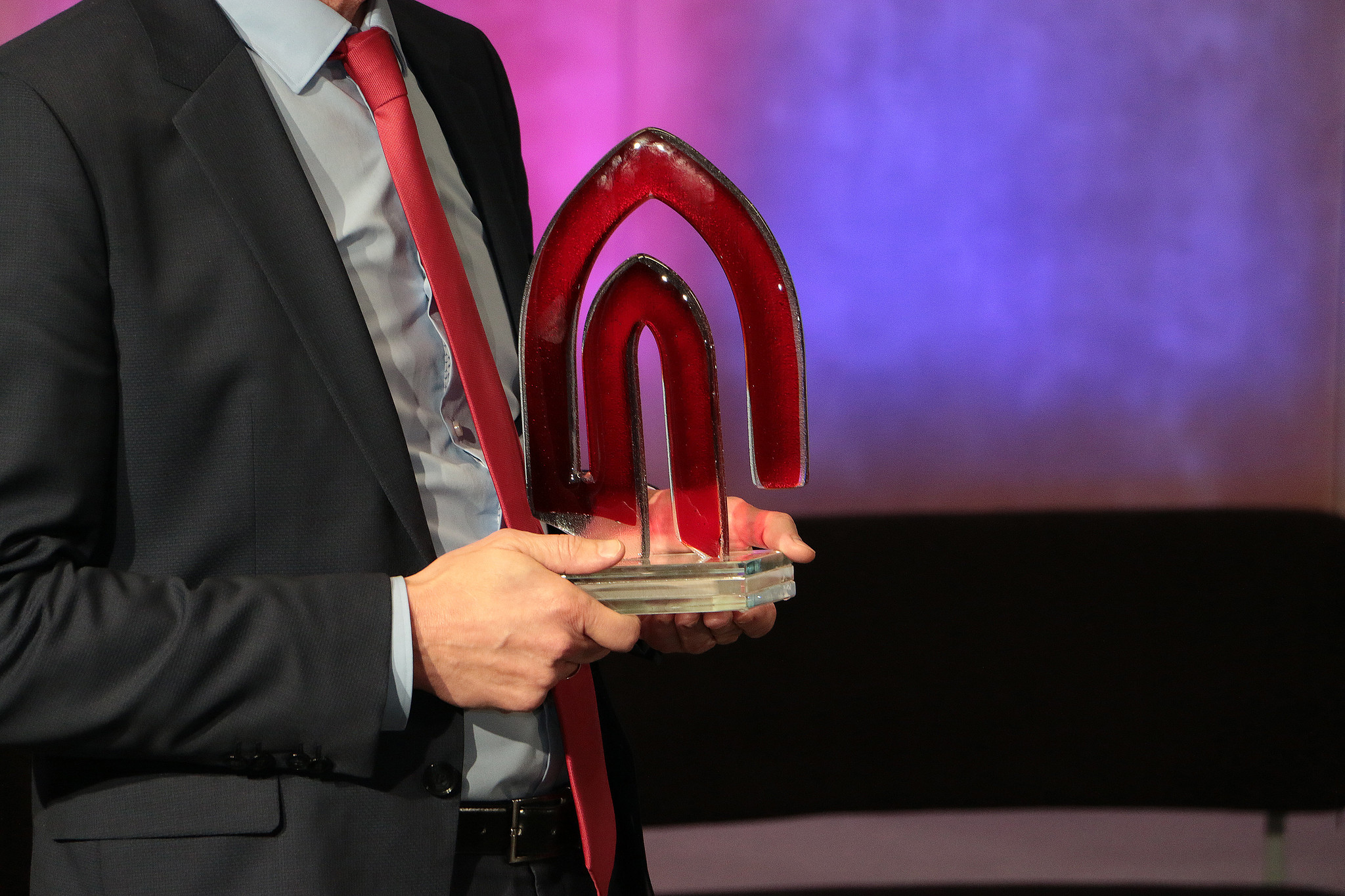Recognition of educational innovation initiatives
Tallinn University wishes to publicly acknowledge educational innovation initiatives that have been designed, implemented and evaluated on an evidence-based basis by educational institutions as innovative teaching and mentoring practices.
Recognition is based on the following criteria:
- the aim of the educational innovation initiative is to support the learner's learning and development based on the data collected by the educational institution and scientific evidence;
- the educational innovation initiative has influenced other aspects of school culture and changes are also planned in the organisation of teachers' work, organisation and environment of teaching and learning, management, cooperation with stakeholders, etc.;
- the effectiveness of the educational innovation initiative has been assessed and its sustainability has been planned by ensuring its dissemination inside and outside the educational institution;
- the challenges of introducing the educational innovation initiative have been critically analysed by the educational institution and further areas for development have been identified.
2020 Educational Innovation
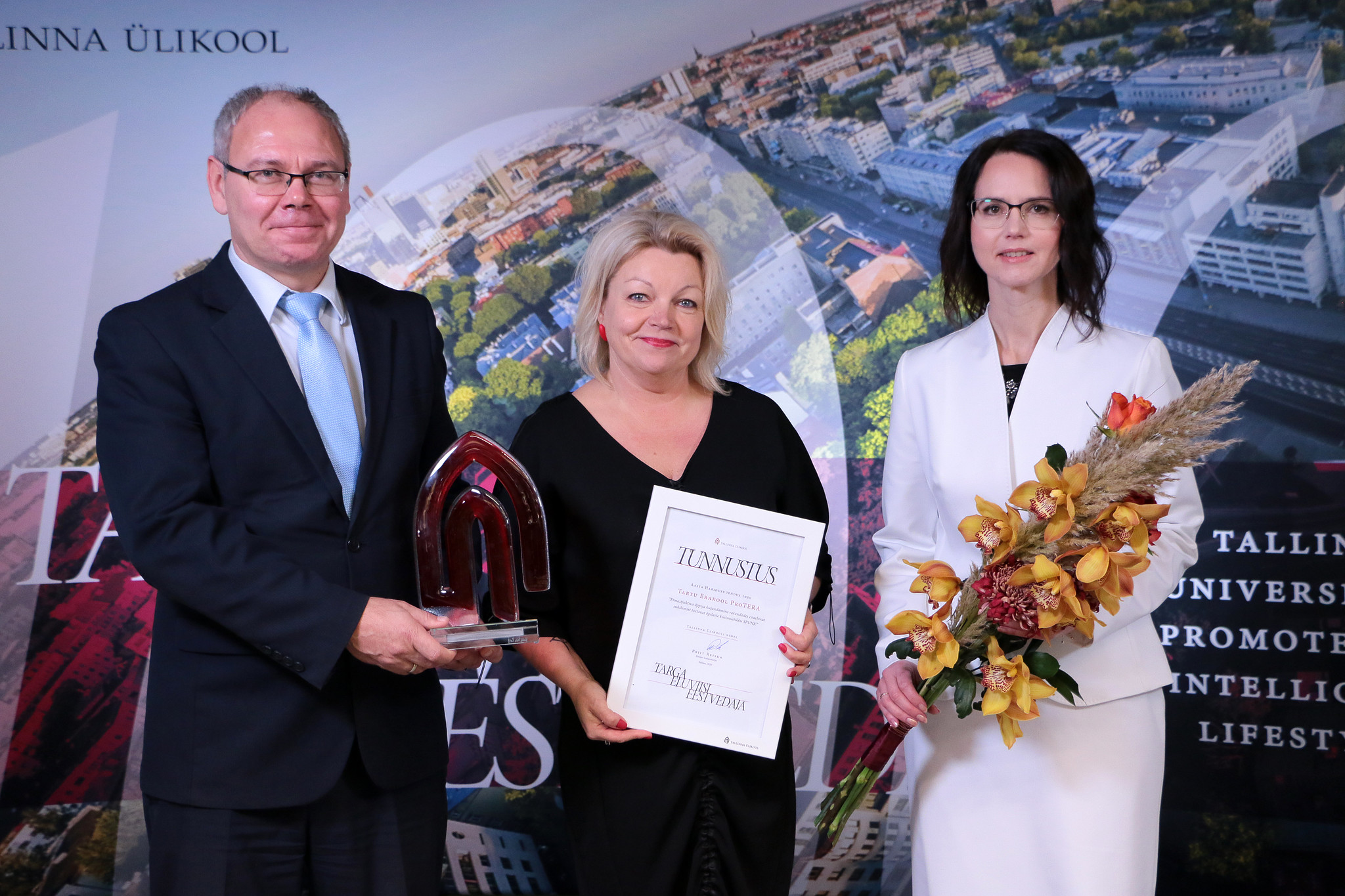
The "Haridusmõte" education conference on 30 October 2020 once again selected an educational innovation initiative to recognise. This year, the prize was awarded to the Tartu private school ProTERA for the innovation “Shaping self-directed learners through the SPUNK learner questionnaire that supports the coaching approach to communication”.
The award was received by the school's director Marjeta Venno at the award ceremony.
ProTERA offers an intellectual study environment that supports age-appropriate development and a sense of belonging, taking into account the learners' own world, where learning motivation and independence grows through encouraging interests and making choices, where children become creative and self-directing learners at an early age and their individual learning journeys are supported through constructive feedback and coaching.
The aim of the educational innovation initiative was to give support in solving longer, multi-stage challenges by implementing a questionnaire supporting a coaching approach to communication (SPUNK), which helps to analyse the current state of the process and guides learners to rethink their activities. The satisfaction survey conducted at the end of the year confirmed that the innovations have justified themselves from the students' point of view. Students agree that the challenges are exciting, challenging, and receive ample support by the team leaders.
The innovation has been rooted in an evidence-based, systematic approach involving the entire school family. Another highlight of the initiative is its sustainability planning: it is evident that the innovation is becoming an integral part of the school culture.
2019 Educational Innovation Award
The teacher education conference on October 24 selected the first ever recipient of the recognition, granting the award to Tallinn Art Gymnasium for its integration of non-formal education into everyday teaching through the introduction of interest lessons in school stages I–III.
Mari-Liis Sults, the director of Tallinn Art Gymnasium, received the award at the award ceremony.
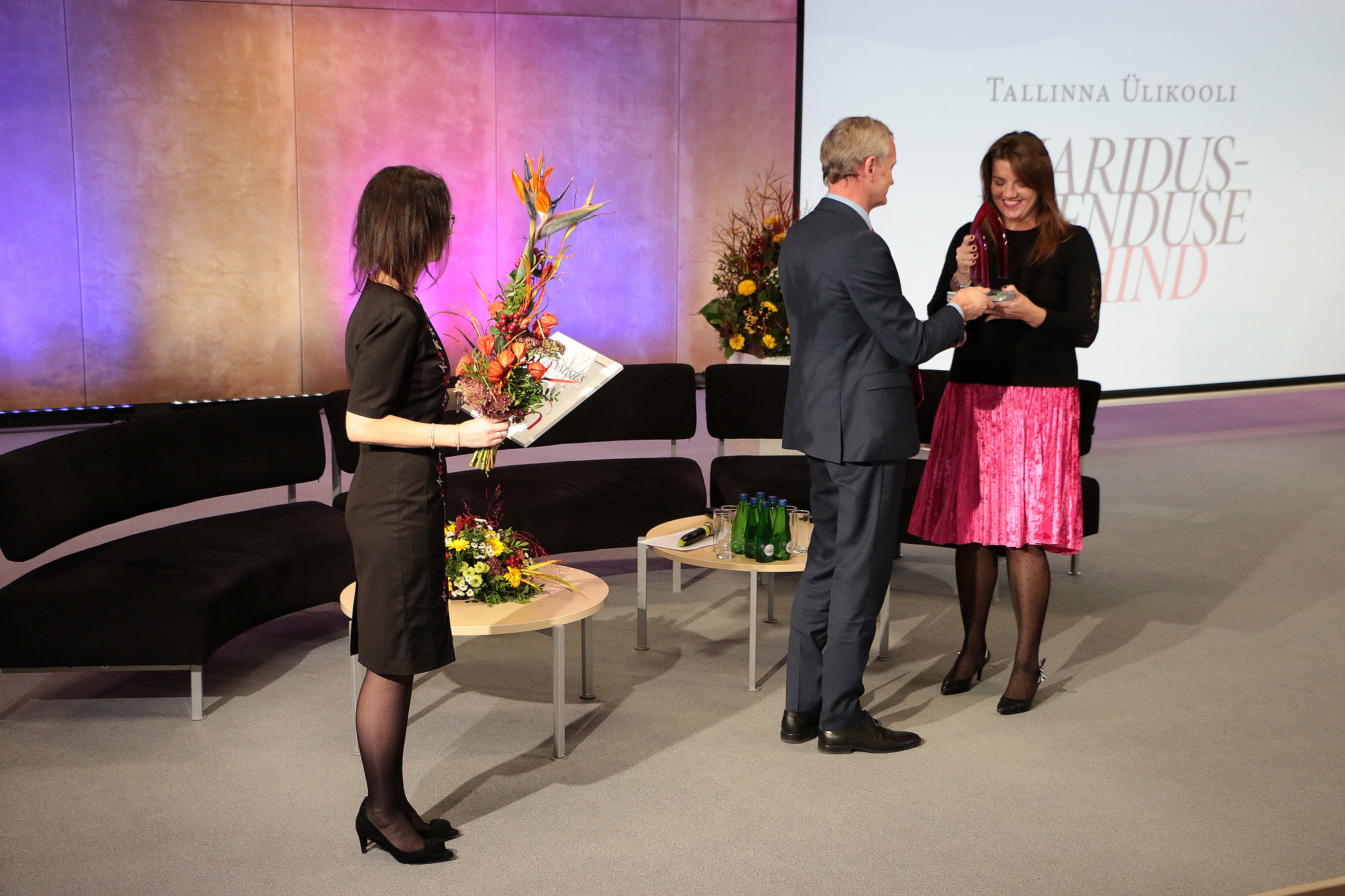
In particular, Tallinn University highlighted the educational innovation initiative's clearly formulated goal developed to address actual challenges in the school life. Low student participation in hobby groups, low student achievement and a large number of absences have been analysed as evidence.
The innovators sought inspiration from the experiences of other schools in order to achieve the goal of their school: motivated and self-directed learners. Aside from the solid underlying idea, Tallinn Art Gymnasium has also systematically and inclusively implemented the innovation in its everyday work. Both the management and the teachers have contributed to the innovation, leading to changes in the general organisation of school life.
The school's openness to analysing the bottlenecks and its consistency in finding solutions were also highlighted.
The implementation of interest lessons is not limited to the management of organisational and technical issues, but also monitors whether and how students are involved in the lessons and how their motivation to learn changes in the course of the process.
